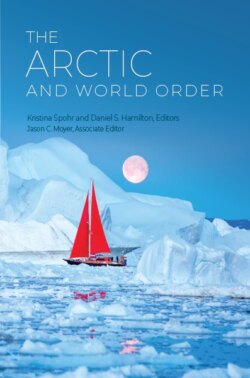Читать книгу The Arctic and World Order - Группа авторов - Страница 9
На сайте Литреса книга снята с продажи.
Current Challenges
ОглавлениеDespite some notable successes, the Arctic regime is subjected to continuous review and frequent critique. Some argue that today’s world of diffused power, higher geopolitical tensions, and more alarming geophysical changes will test the limits of the Arctic Council and its orbiting networks of state and non-state actors.34 Those tensions were on display at the May 2019 Arctic Council ministerial meeting in Rovaniemi, Finland, when U.S. Secretary of State Mike Pompeo sharply warned Russia and China against “aggressive” actions in the Arctic, while resisting a diplomatic push by other countries in the region to avert the worst effects of climate change. “This is America’s moment to stand up as an Arctic nation,” he proclaimed. “The region has become an arena of global power and competition.” Pompeo sent a clear warning shot across Beijing’s bow by challenging its self-conception as a “near-Arctic” state: “There are only Arctic States and Non-Arctic States. No third category exists, and claiming otherwise entitles China to exactly nothing.”35
By describing the rapidly warming region as a land of “opportunity and abundance,” Pompeo cited its untapped reserves of oil, gas, uranium, gold, fish, and rare earth minerals. Melting sea ice, he said, is opening up new shipping routes. “We’re entering a new age of strategic engagement in the Arctic, complete with new threats to Arctic interests and its real estate.” What Pompeo chose to largely omit was any reference to protecting the fragile ecosystem of the Arctic for the sake of the global climate and to the continued need for constructive diplomacy to this end. Many observers and diplomats from Northern Europe were shocked by the U.S. demarche, because the Arctic Council’s mandate is supposed to have nothing to do with security issues, and because Pompeo brought into the discussion outside problems and actors, including China.36 Most offensive of all, Pompeo blocked a joint Arctic Council Declaration on Climate Change, thereby not only going against the Council’s ideals but fundamentally hampering its functioning as a model for intergovernmental cooperation. In response, Finnish Foreign Minister Timo Soini stressed that most Council members had welcomed the Paris Climate Agreement and “noted with concern” the findings of a United Nations scientific panel, which warned of worsening food shortages and wildfires as soon as 2040 without drastic transformation of the world economy.37
